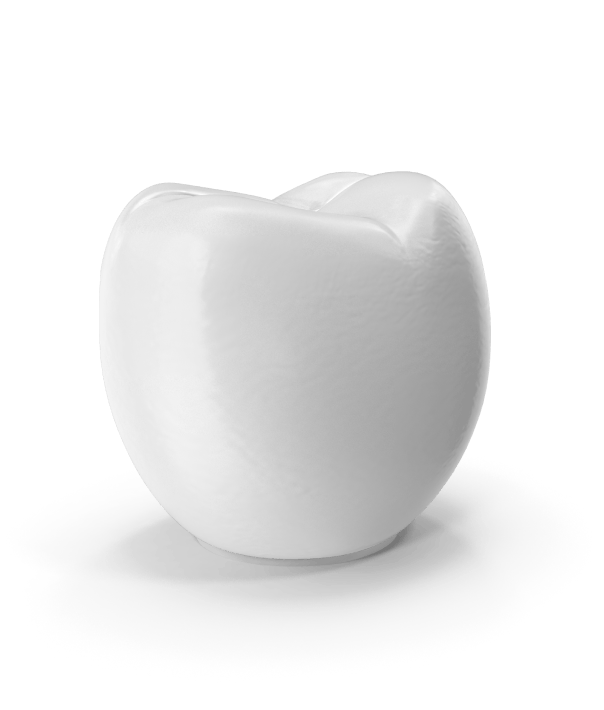Restorative Dentistry

What Is Restorative Dentistry?
Restorative dental treatments are a group of procedures that repair and enhance dentition to get patients back to exceptional oral health. From repairing cavities with simple fillings to replacing teeth with dental bridges or dentures, restorative treatment can help your smile become healthy once again. Call today to receive restorative dentistry at SmileCraft Dental Studio.
What to Expect?

COMPREHENSIVE EXAM
To begin, your dentist will examine your teeth and assess the extent of your dental issue. X-rays may need to be taken at this time to ensure proper diagnosis.

RECOMMENDED TREATMENT PLAN
Once your issue has been diagnosed, your dentist will provide you with a recommended treatment plan for your approval.

ALTERNATIVE OPTIONS
Many dental issues have multiple treatment options. Missing teeth, for example, can be treated with dentures, dental bridges, or dental implants. Your dentist can discuss all options with you and help you choose what’s best for your lifestyle, budget and needs.

SEDATION OPTIONS
We offer sedation for patients undergoing restorative procedures to keep them more comfortable and relaxed during treatment. Your dentist will discuss the available sedation options and offer recommendations on what’s best for you.

SCHEDULING & PAYMENT
In some cases, like emergencies, you’ll need to receive care right away, likely the same day. But if your issue is not urgent, your follow-up appointments will be after your initial visit. Before you leave, we’ll schedule your treatment for a day and time that works for you.
What Can Invisalign Treat?
Overbite
Sometimes your upper front teeth overlap with your lower front teeth. This is called an overbite, and this occurs in most people. It becomes a problem when the overbite is too large. If you have too deep a bite, your teeth may wear down or you could suffer from jaw pain. Invisalign can fix an overbite or deep bite, and get your teeth in a healthier position.
Underbite
An underbite is when your lower front teeth are in front of your upper front teeth. The problem often lies in the position of the jaw; the lower jaw being too far forward. This misplacement can make it hard to chew and speak properly, and may cause wear and tear to the teeth. Invisalign can fix some cases of underbites, but severe underbites may require Invisalign treatment as well as oral surgery.
Crossbite
Normally, the upper front teeth sit in front of the lower front teeth. Crossbites are when a few of your upper teeth sit behind your lower teeth. This can cause your teeth to wear down or chip, and may also cause gum recession, which can lead to painful gum problems or even bone loss. Invisalign can fix some crossbites, but it’s best to have a consultation with your doctor to see which options are right for you.
HOW ARE DENTAL IMPLANTS MADE?
A dental implant is made of two parts: a small, screw-shaped piece of titanium called the post, and the restoration, which is usually a dental crown and abutment. Posts are manufactured in a variety of pre-selected sizes to ensure each patient gets the right implant for their needs. In contrast, the restoration is completely custom-made. After your dentist places your dental implant, they will take impressions of your teeth and send them to a dental lab.
HOW LONG DO DENTAL IMPLANTS LAST?
Dental implants typically last up to 30 years or more with proper placement and care. In fact, it’s very common for patients to keep their implants for the rest of their lives. However, the dental implant restoration, such as a dental crown or set of overdentures, usually will not last this long. Your restoration is exposed to regular wear and tear from chewing, biting, and more, and may need to be replaced a few times over the years.
CAN DENTAL IMPLANTS GET INFECTED?
It is possible for dental implants to become infected. This is known as “peri-implantitis.” However, this is a very rare complication, and it typically only occurs if the implant is not cared for and kept clean after surgery. You can avoid peri-implantitis by following your dentist’s instructions while recovering, and by brushing and flossing regularly after your implant has healed.
WILL DENTAL IMPLANTS STOP BONE LOSS?
Yes. Bone loss occurs when your jaw bone is no longer stimulated by the natural pressure of chewing and biting. Your tooth transmits this force through the root and into your jaw bone, which keeps your jaw bone healthy. When you lose a tooth, this process stops, and the jaw bone tends to weaken. Since the post of the dental implant is placed directly into the jaw bone and acts as a tooth root, it restimulates your jaw bone by transmitting the force of chewing and biting once again.
CAN DENTAL IMPLANTS BE DONE IN ONE DAY?
Some types of dental implant systems can be done in one day. The restoration is usually temporary until you have fully healed from your dental implant placement surgery. This solution allows you to speak and eat normally, however, the restoration is temporary. As your mouth heals, you’ll attend appointments at your doctor’s office where impressions will be taken. These impressions will guide the manufacturing of your restoration. This permanent restoration will be a more durable, long-lasting, and natural-looking prosthetic than your temporaries.
Hours
- Monday
- Tuesday
- Wednesday
- Thursday
- Friday
- Saturday
- Sunday
- 7am - 6pm
- 7am - 6pm
- 9am - 6pm
- 7am-6pm
- Appointment Only
- Closed
- Closed

Book An Appointment
Join our Smile Craft VIP list today!
Benefits include: Priority Booking, Free SmileCraft Gear, Special offers and discounts